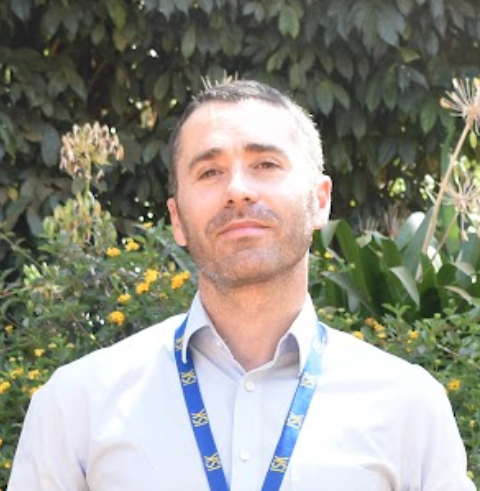Building Global Restorative Curricula
Alistair Goold is a high school social science teacher and Grade 11 (G11) Leader at the International School of Kenya. He teaches the International Baccalaureate Diploma Program (Global Politics and Theory of Knowledge) to G11 and G12, as well as social sciences to G10. Currently enrolled in the IIRP Graduate School, he is no stranger to restorative practices and has brought this work into his teaching roles around the world.
Q: What brought you to the IIRP?
A: I first attended an IIRP event in New York back in 2015, led by the inspirational Keith Hickman, IIRP’s vice president for partnerships. At the time, I was a Grade Level Leader at an international school in the Middle East and received funding to learn more about restorative practices. By 2020, I was working on a master’s degree and was not feeling passionate about my studies. I remembered my positive experience with the IIRP Graduate School and switched to enroll in the IIRP’s Master of Science program with the assistance of the incredibly kind and helpful IIRP Senior Advisor for Student Enrollment, Kristen Webber. I can honestly say that I have not looked back. I have loved the journey with the IIRP and absolutely relished the supportive, caring, and challenging environment.
Q: Please tell us about your restorative work now and what makes you passionate about it.
A: I currently live and work in Nairobi, Kenya. In my capacity as Grade Level Leader, I am working to integrate restorative principles into the G11 advisory program where our curriculum is delivered primarily through circles. In my free time, I also deliver training to other international schools in East Africa that are interested in restorative practices. I am especially passionate about working with local teachers and delivering restorative training to serve schools here in Kenya.
Before teaching, my background was in inner-city youth work in Glasgow, Scotland (my home country), where I worked with disadvantaged young people. I then spent 5 years working in several schools across Scotland before leaving to work in international education. My passion for restorative practices comes from my background working with young people from less privileged communities. I recognized early on that the restorative approach helps fulfill unmet needs by offering high levels of support whilst also maintaining high levels of accountability for problematic behavior.
I am a member of the European Forum for Restorative Justice and plan to serve on the education committee in 2024. At the time of this interview, I have just submitted my capstone project for the IIRP, and I am about to upload my final oral presentation, which will result in my completion of the Master of Science in Restorative Practices.
Q: What would you like to see in this restorative work in the future?
A: There is a lot of literature on the unique social and emotional needs of international school children (who are known as “third culture kids”). I believe that restorative practices has a critical role to play in international schools as we seek to introduce processes, systems, and language that serve to meet these needs. I also believe that we need to do more to support the parents of third culture kids, who themselves would benefit from having a restorative toolkit to aid them in their international transitions. I recently co-authored a brief for the Council of International Schools, outlining the role that restorative practices can play in this sector, and I hope to see more schools implement the restorative approach in their communities.
